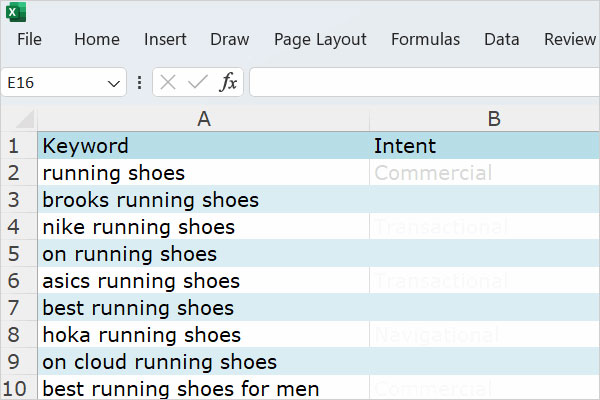Keyword research is vital for your SEO success. Without it, you’re essentially flying blind, trying to optimize your website for keywords that people may not even be searching for.
But keyword research is more than just finding the most popular keywords in your industry. It’s also about understanding those keywords’ intent and optimizing your content for different types of searches.

For example, a bicycle retailer could target the keyword ‘bicycles’. But that’s a broad and very competitive keyword. Instead, the retailer could target more specific keywords, such as ‘bike for kids’ or ‘women’s bicycles’.
Keyword research can also uncover long-tail keywords. Long-tail keyword phrases are longer, more specific, and less competitive than broad keywords. For example, instead of targeting the keyphrase ‘bikes for kids’, the retailer could target the long-tail keyphrase ‘best bike for 6-year-olds’.
Once you’ve identified a list of keywords to target, you need to understand the users’ intent of their search and optimize your website for those keywords. Optimizing keywords means using them in page titles, meta descriptions, header tags, and throughout your content.

It’s important to note that keyword stuffing is a big no-no. You want the keywords to flow naturally in the content versus forcing your keywords into your content in a way that sounds unnatural. It’s essential to focus on creating high-quality, informative, and relevant content that engages your target audience.
By following these tips, you can use keyword research to improve your SEO.
Here are 8 Benefits of Keyword Research:
- Learn more about your target audience’s interests, pain points, and goals
- Identify new opportunities to grow your business
- Create more effective marketing campaigns
- Improve your website’s search engine ranking
- Increase website traffic
- Generate more leads and sales
- Build brand awareness
- Measure the Return on Investment (ROI) of your marketing efforts
To Succeed Online, It’s Essential to Leverage Keyword Research
To improve your SEO and drive more traffic to your website, keyword research is essential.
Keywords are divided into two main types: Broad Keywords and Long-tail Keywords. Broad keywords are very general, such as ‘bike’ or ‘helmet’. Long-tail keywords are more specific, such as ‘women’s bike shoes’ or ‘bike for little girls’.
Broad keywords are more competitive, meaning they are more frequently used, but have a higher search volume. Long-tail keywords have a lower search volume but are less competitive.
Understanding User Intent
When choosing keywords to target, it is important to understand the user’s intent. What is the user trying to achieve when they search for a particular keyword?
For example, if someone searches for the keyword ‘shoes’, they may be looking to buy shoes, learn more about shoes, or find a specific type of shoe. By understanding the user’s intent, you can choose more effective keywords to help increase conversions.
Optimizing Your Website for Keywords
Once you have chosen a list of target keywords, you need to optimize your website for those keywords. Keyword optimization means using the keywords in your page titles, meta descriptions, header tags, and throughout your content.
Avoiding Keyword Stuffing
It’s important to avoid keyword stuffing, which is forcing keywords into your content in an unnatural way. Instead, create high-quality, informative, and relevant content for your target audience.
3 Tips for Avoiding Keyword Stuffing:
- Use your keywords conversationally
- Avoid repeating your keywords too often
- Make sure your keywords are relevant to the content of your page
Additional Benefits of Keyword Research
Keyword research has many benefits beyond SEO. It can help you:
- Understand your target audience better
- Identify new opportunities to grow your business
- Create more effective marketing campaigns
- Measure the Return on Investment (ROI) of your marketing efforts
Don’t let ineffective keyword research and bland content hinder your online growth. Contact Patty today and start attracting more customers and achieving your marketing goals!